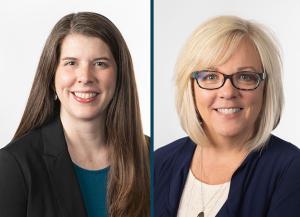So much attention has been devoted to student ownership of learning and we know that that's very important. We would also assert the importance of planning for professional learning with teacher ownership of their own learning in mind. This episode highlights some practical and time-proven techniques for effective planning and facilitation of professional learning within the PreK-12 environment.

The Ayers Institute offers a full-day or customized training on preparing high-quality professional learning including the use of research findings on effective adult-learning practices. Please contact us to inquire about bringing this training opportunity to your school, district, or organization.
Key Questions for Planning:
- Who is my audience?
- Why are they coming?
- What will they gain from this time spent together?
Key Attributes:
- Honor the learner’s prior learning and knowledge.
- Give something relevant that learners can implement right away.
- Build in margin to allow for discussion and connection between participants.
- Include humor, storytelling, music, and fun.
Information Sources:
- Learning Forward provides both resources and standards for professional learning.
- Education Week ("EdWeek")
- Edutopia
- The Association for Supervision & Curriculum Development (ASCD) provides resources.
- Author and Educator: Dr. Marcia Tate
- Researcher: Dr. Malcolm Shepherd Knowles (1913–1997)
"In a nutshell, educator ownership of learning means making those meaningful connections, being excited about it, and then translating that into concrete next steps."
—Dr. Rachael Milligan
“Truly, when adults are able to get together and talk about important and meaningful things (and also intersperse humor and storytelling) and just loving to hear other people's ideas through that– that really helps the information that you're trying to share to stick with the person long term.”
—Dr. Rachael Milligan
"Make it known in a very authentic way that you are honoring people's prior knowledge, prior experience, and the background that all the people in the room are bringing to the table. That is critical in building community early and allowing the professional learning experience to feel more like it's being led by the collective group. That's what you want. You want professional learning be a community of learners, not 'the sage on the stage.'"
–Dr. Rachael Milligan
- Producer & Host: Karen Marklein
- Engineer & Editor: Forrest Doddington
